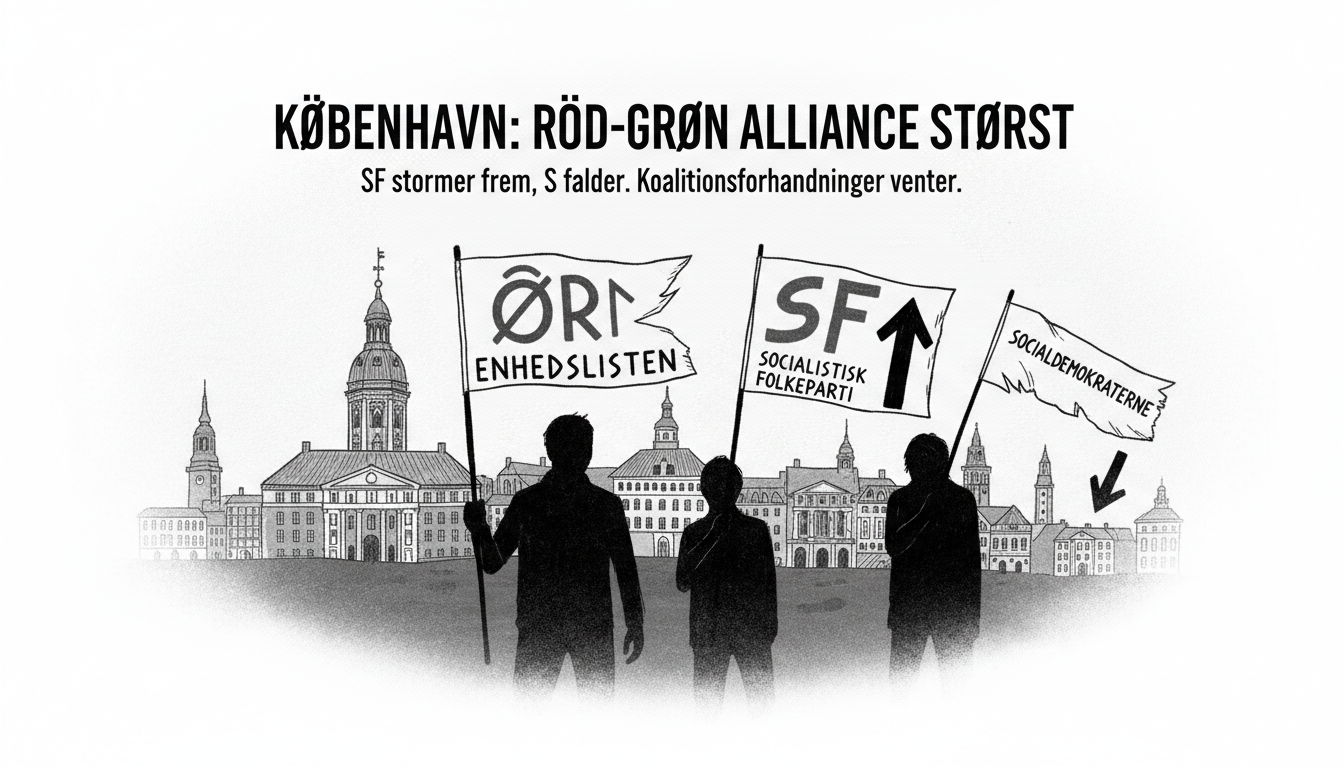The Red-Green Alliance has secured its position as Copenhagen's largest political party for the second consecutive municipal election. Despite a modest decline of 2.5 percentage points, the party captured 22.1 percent of votes. This solidifies their dominant position in Denmark's capital city.
The Social Democrats suffered another electoral setback in Copenhagen. Their support dropped to 12.7 percent, representing a 4.5 percentage point decrease from the previous election. This decline means the Social Democrats no longer hold the position as second-largest party at City Hall.
The Socialist People's Party emerged as the election's biggest winner. They gained 6.9 percentage points to reach 17.9 percent of votes. This surge positions them as the new second-largest party in Copenhagen's municipal government.
All three major parties now compete to form a governing coalition. The key question centers on which party can assemble the magic 28 mandates needed for a majority in Copenhagen's City Council. Each party's lead candidate actively campaigns to become the city's next lord mayor.
The Conservative People's Party remains relevant in coalition discussions. Despite a small decline, they maintain their status as the largest center-right party at City Hall with 11.3 percent support. Their votes could prove crucial in forming a working majority.
Copenhagen's political landscape reflects broader urban trends across Scandinavia. Left-wing parties typically perform stronger in capital cities compared to national averages. The Red-Green Alliance's continued dominance demonstrates this pattern remains intact.
The election results signal ongoing challenges for traditional social democratic parties in urban centers. The Social Democrats' decline continues a pattern seen in other Nordic capitals. Voters in cities increasingly favor more explicitly left-wing alternatives.
Coalition negotiations will likely focus on policy priorities including climate action, housing affordability, and public services. The outcome will shape Copenhagen's direction for the next four years. International observers watch closely as Danish municipal politics often foreshadow national trends.

